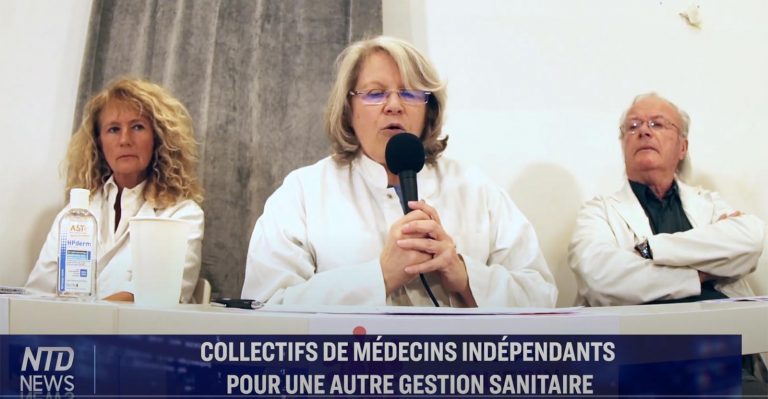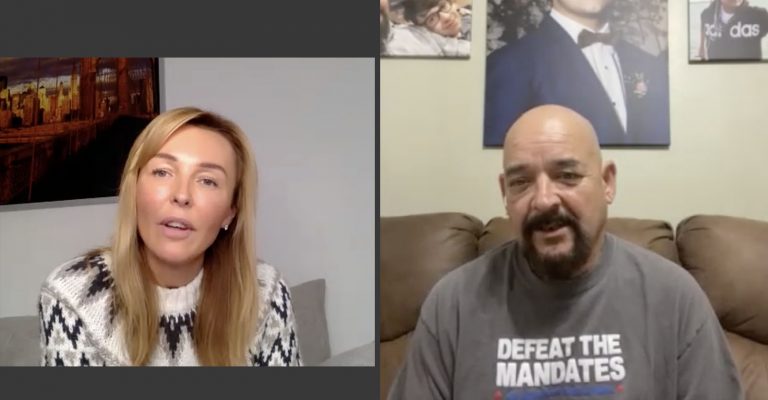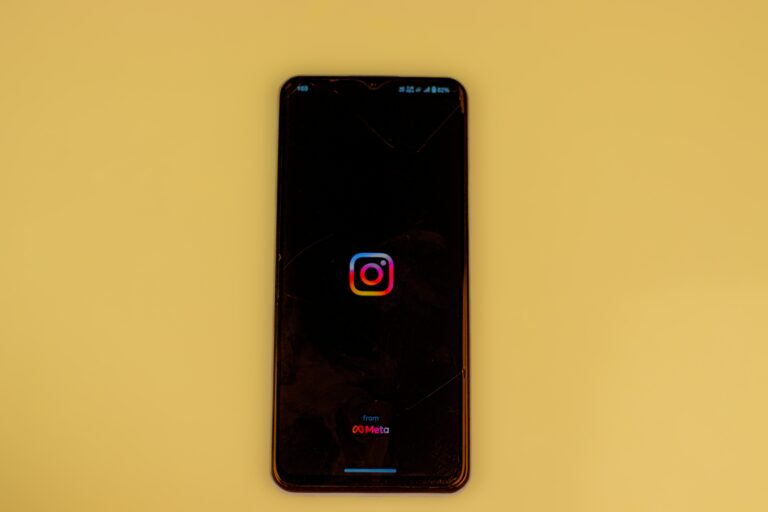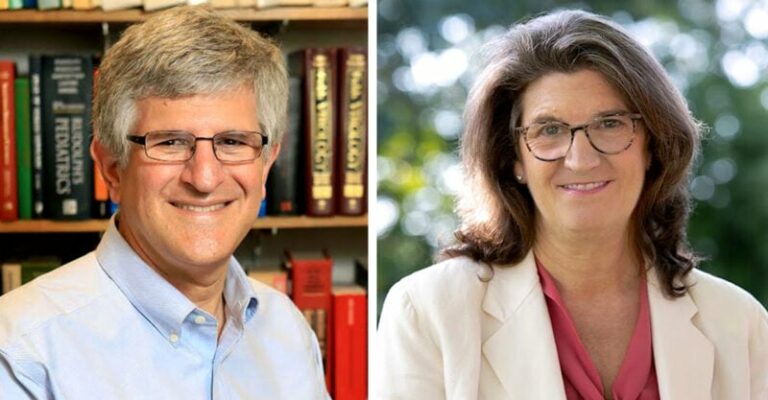Unfazed by 140+ Lawsuits, Merck to Test Single-Dose HPV Vaccine
Merck today announced two new initiatives for growing the global market for its human papillomavirus, or HPV, vaccines. The initiatives include the pharmaceutical giant’s first single-dose HPV shots plus multivalent HPV vaccines designed specifically for Asian and African populations.
Pharmaceutical giant Merck today announced two new initiatives for growing the global market for its human papillomavirus (HPV) vaccines.
The company is developing a new investigational multivalent — meaning it targets many virus strains — HPV vaccine aimed at HPV types known to disproportionately affect African and Asian populations and people of African and Asian descent, the company said. Merck said it will begin testing the vaccine in humans in the fourth quarter of 2024.
The company also plans to launch two separate multiyear clinical trials to test the efficacy of a single dose of its Gardasil 9 HPV vaccine in females and males ages 16-26, in contrast to the company’s three-dose regimen for the currently approved Gardasil shots. That trial also will start at the end of 2024.
Since 2019, Merck has invested more than $1.6 billion in manufacturing plants to increase the global supply of Gardasil. It nearly doubled its supply between 2017 and 2020 and again between 2020 and 2024 and plans to continue to grow its supply capacity, it stated.
Merck’s reported global 2023 profits from its Gardasil product line were $8.9 billion, up 29% from the previous year.
The company is currently facing 143 lawsuits in federal court from people who suffered a range of serious injuries after taking Gardasil, including autoimmune disorders, premature ovarian failure and cancer. There are also over 200 Gardasil injury claims pending in the Vaccine Court.
Racial and ethnic disparities in HPV infection
It has long been known that the distribution of HPV genotypes varies by race/ethnicity — a difference that persists when controlling for demographic and sexual behavior differences — and that the types of HPV targeted by the vaccine are not necessarily the predominant type among Black women.
Yet, while proclaiming the HPV vaccine’s effectiveness as a tool to fight cancer, until now Merck has not developed any vaccines to target the strains that affect African American women or women in Africa and Asia, where cervical cancer rates are highest.
“It’s really kind of sad,” Kim Mack Rosenberg, Children’s Health Defense general counsel, told The Defender. “They ignored those women for a long time and now they are looking for a new way to market their products.”
Rosenberg is co-author of “The HPV Vaccine On Trial: Seeking Justice For A Generation Betrayed.”
In the U.S., the incidence of cervical cancer is 60% higher and mortality is more than two times higher for women of African descent relative to women of European descent. Yet African American women are two times less likely to be infected with “high-risk” HPV strains 16 and 18, targeted by all of the HPV vaccines.
Overall, research has found that non-Hispanic Black and Hispanic women have the lowest prevalence of HPV genotypes covered by currently available bi- and quadrivalent vaccines and the highest prevalence of genotypes not covered by any vaccine.
A single-dose recommendation?
The Centers for Disease Control and Prevention (CDC) recommends the HPV vaccine as part of routine vaccination, indicating a two-dose schedule for adolescents who begin vaccination before age 15 and a three-dose series for teens and young adults who begin the series between ages 15-26.
To boost global coverage, the World Health Organization (WHO) changed its dosing recommendations several times. When the vaccine first came on the market, the WHO recommended a three-dose course of any version of the vaccine — but in 2014, it changed its recommendation to two doses as part of routine vaccination.
Last year, the WHO announced that “a single-dose Human Papillomavirus (HPV) vaccine deliverssolid protection against HPV,” and it changed its recommendations again to “one or two dose schedules” for girls and women ages 9 and up, based on “evidence that has been emerging over past years.” The WHO announcement did not cite any specific research behind the change.
Today’s announcement suggests Merck had not yet conducted that research.
The WHO celebrated the single-dose recommendation as “less costly, less resource intensive and easier to administer,” predicting that it would be a “game-changer,” and adding “this single-dose recommendation has the potential to take us faster to our goal of having 90 percent of girls vaccinated by the age of 15 by 2030.”
The Bill & Melinda Gates Foundation-backed Gavi, the Vaccine Alliance has been distributing the HPV vaccine in Africa since 2011. By the end of 2020, Gavi funded the launch of national HPV vaccination campaigns in 13 African countries.
Vaccine injury lawsuits pile up in U.S.
The Gardasil vaccine has been linked to myriad adverse events worldwide. Some of the signature impacts observed following HPV vaccination include permanently disabling autoimmune and neurological conditions, such as postural orthostatic tachycardia syndrome, or POTS, fibromyalgiaand myalgic encephalomyelitis/chronic fatigue syndrome.
A new study in the journal Vaccine found that adolescent girls who received the quadrivalent vaccine were more likely to develop several different types of autoimmune diseases than their unvaccinated counterparts in the year following vaccination.
The girls in the study were 4.4 times more likely to develop rheumatoid arthritis, 2.76 times more likely to develop juvenile idiopathic arthritis, 2.86 times more likely to develop thyrotoxicosis and 2.54 times more likely to develop idiopathic thrombocytopenic purpura.
This study adds to a large body of peer-reviewed scientific literature from the U.S., Australia, Denmark and Sweden, France, Japan, and Colombia and statistics published by public health agencies in each of these countries demonstrating plausible associations between HPV vaccination and autoimmune conditions.
Despite the widespread evidence of injuries associated with the vaccine, Merck continues to market it as “safe and effective.”
However, the company faces nearly 200 complaints in the federal court system alleging that the HPV vaccine caused debilitating autoimmune complications.
The lawsuits allege the drugmaker fast-tracked Gardasil through the U.S. Food and Drug Administration’s (FDA) approval process and deceptively conducted clinical trials to mask serious side effects and exaggerate the vaccine’s effectiveness.
Many of the lawsuits were consolidated into multidistrict litigation. A single federal judge in North Carolina will hear 16 cases from the larger pool of lawsuits pending. They will serve as a series of “bellwether trials,” the outcome of which will shape the process for the growing number of claims brought against Merck for Gardasil-related injuries.
The consolidation order allows Gardasil lawsuits filed throughout the country to move into coordinated discovery and pretrial proceedings.
Discovery is ongoing and the cases will likely be heard early next year.
Gardasil’s long-growing market
Gardasil markets its products to adolescents and adults through age 45 to protect against HPV-related cancers, although Merck’s clinical trials for Gardasil tested only whether the vaccine suppressed the targeted strains of HPV — not if the vaccine protected against cancer.
HPV is the most common sexually transmitted infection in the U.S. Most people will get the infection at some point in their lives, but 90% of infections clear on their own with no residual health consequences on clinical follow-up.
Cervical cancer is the cancer most commonly associated with certain types of high-risk HPV infections, which can cause cervical cell abnormalities.
However, HPV infection is not the sole risk factor for cervical cancer. It is thought to be one factor that works in combination with other exposures to several environmental or immunological inflammatory mechanisms.
Regular pap screening has been found to reduce by at least 80% the incidence of and mortality fromcervical cancer among women.
Merck’s Gardasil was first licensed in 2006 for use in girls and women ages 9-26 to prevent four high-risk strains of HPV.
The FDA in 2009 expanded the license for use in males ages 9-26 for the prevention of genital warts. In 2011, the CDC’s Advisory Committee on Immunization Practices recommended it for routine use in boys.
In 2014, the FDA approved Gardasil 9, designed to protect against 9 HPV strains, for use in the prevention of HPV-related cervical, vaginal and vulvar cancers in females and HPV-related anogenital lesions and anal cancers in males and females.
The agency also expanded the recommended age range to ages 9-45 — for males and females.
In June 2020, the FDA added the prevention of oropharyngeal and other head and neck cancers to the list of indications for the HPV vaccine under the “accelerated approval licensure pathway.”
Among U.S. adolescents ages 13-17, 76.0% received one or more doses of Gardasil in 2022 and 62.6% had received the entire vaccine series, which is still below the U.S. public health agencies’ goal of vaccinating at least 80% of adolescents with Gardasil by 2030.
According to the WHO, 21% of girls globally had received one dose of the HPV vaccine in 2022, versus 16% in 2021 and 6% of males had received one dose.
Suggest a correction







